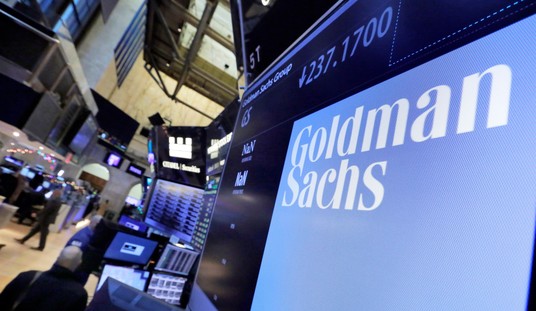As you’re probably well aware, there has been a real reversal over the past month on the issue of the lab leak with everyone from Joe Biden on down saying it needs to be investigated. Yesterday, in another sign of how the lab leak has gained credibility, the Washington Post reported that Facebook had decided to reverse course and stop blocking and discussion of the topic.
As the U.S. reopens a debate into the origins of the novel coronavirus, Facebook reversed course Thursday and said that it would no longer remove posts that claim the virus is man-made.
But for the Post, this immediately leads to a new concern. Will the ability to discuss the lab leak lead to more anti-Asian sentiment?
Joan Donovan, research director of the Technology and Social Change Research Project at the Shorenstein Center on Media, Politics and Public Policy at Harvard Kennedy School said it was inevitable that the changing sentiment around the lab theory could unleash more anti-Asian sentiment on social media. Tech companies need to redouble their efforts to protect Asian Americans and Pacific Islanders now that the claim is gaining more credence, she added.
“What we have to look out for in the U.S. is an uptick in content that criticizes China, while dividing the AAPI community,” she said. “Content that dehumanizes Chinese people, accuses Chinese people of being responsible or somehow of knowing about the pandemic, or otherwise suggests that it was a bioweapon will grow. Companies are going to have to look for content where AAPI hate is monetized and make sure that it does not become profitable.”…
Just in the last week, since the discussion of the virus’s origins has been reopened, the term “Wuhan Lab” spiked across social media…
I think the reason “Wuhan lab” is trending is probably because a lab in Wuhan is considered the place where the virus might have leaked out. It’s literally called the Wuhan Institute of Virology so “Wuhan lab” is pretty accurate shorthand.
But the bigger problem here is the suggestion made above that that “criticizing China” is akin to hating Asian Americans. As Sonny Bunch pointed out, one of these things is not like the other. Indeed one of these things is completely defensible.
Criticizing China is good because China’s government is wicked.
— Sonny Bunch (@SonnyBunch) May 28, 2021
And the story goes on to connect all of this talk about the lab leak to President Trump and right wing news sites which “kept pushing the lab theory” when no one else was allowed to talk about it. So there’s a clear political angle to all of this.
But if you really believe that discussion of this story is likely to result in a fresh outbreak of anti-Asian hate online and in the streets, then where is the similar concern about the recent anti-Semitic attacks? Multiple people around the country (and abroad) were harassed or beaten in the streets. Can we work backward from those incidents and identify the discussions and hot rhetoric that prompted it?
More to the point, has Facebook banned discussion of BDS? Has the Washington Post written a story about how left-wing attacks on Israel spawned the violence? On the contrary, the Post wrote a story about how Rep. Rashida Tlaib called Israel an apartheid state and won praise from President Biden for being a “fighter.”
When Rep. Rashida Tlaib delivered a fiery condemnation last week on the House floor of what she called Israel’s “apartheid” and “racist” policies, she invoked arguments that have long made her a pariah among some Israel advocates, led Republicans to call her anti-Semitic and alienated some of her Democratic colleagues.
So it was a remarkable moment this week, just five days later, when the lone Palestinian American member of Congress stood face to face with the president of the United States on an airport tarmac and, for eight minutes, engaged in an animated conversation about the U.S. response to the latest outbreak of violence between Israel and Palestinians. Equally notable was the decision by President Biden later that day to praise Tlaib during an appearance in her hometown of Detroit.
“I admire your intellect, I admire your passion, and I admire your concern for so many other people,” Biden said Tuesday. “And God, thank you for being a fighter.”
Of course Tlaib wasn’t encouraging anyone to go out in the street and beat up Jews. She even denounced the outbreak of anti-Semitic attacks on Twitter. But that’s not how “climate of hate” arguments work. They don’t require direct calls for violence. On the contrary, they exist to fill in the gaps between hot political rhetoric and violent behavior.
In the case of the lab leak theory, all it apparently takes to risk hate (and maybe violence) is the ability to talk about it online without being blocked by Facebook. But we have an outbreak of anti-Semitic violence which even the ADL says it hasn’t seen before and no one on the left is pointing fingers at the hot language coming from people like Tlaib or openly wishing social media would silence the entire discussion.
It’s hard to look at this and not come to the conclusion that differences in how the “climate of hate” argument is applied have everything to do with which party is deemed to be at fault. That’s been clear at least since Sarah Palin was wrongly blamed for inciting a mass shooting in Tucson and it’s still true today. The left either needs to stop using these arguments or start applying them fairly to the people on their own side of the aisle. For far too long they’ve tried to have it both ways.








Join the conversation as a VIP Member